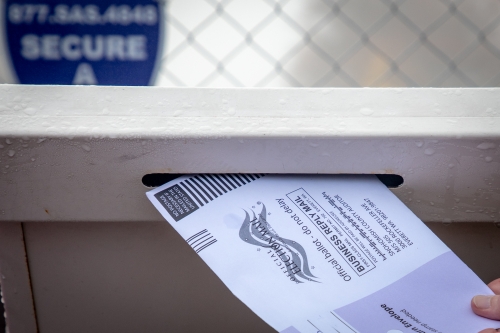Election Reforms Bills Moving
Secure, honest elections are a bedrock of our republic. Thanks to strong state laws and aggressive legal initiatives taken to defend them (one of which was fought—and won—before the US Supreme Court) South Carolina has preempted many problems and largely avoided debacles like those experienced by our neighbors in Georgia and elsewhere.
But with potential future fraud and federal threats to our elections looming, and the experiences of South Carolina and other states in the last several election cycles showing certain vulnerabilities, we knew something had to be done soon to restore confidence and ensure access. That’s why we offered a 20-point plan of essential reforms needed before the 2022 primary and general elections.
In early March 2022, the South Carolina House of Representatives passed a key election reform bill, H.4919, by a vote of 114-0. Here is a summary of some of its key features:
- Sets up a new, two-week in-person early voting period with locations determined by population density rather than the “ten-mile rule,” and provides security for those early voting ballots.
- Prevents a candidate’s name from appearing more than once for a single office in a single election (banning what is also known as “fusion voting”).
- Strengthens oath, witness, and identification requirements for mail-in absentee ballots and voter registration.
- Limits the number of absentee ballot applications a single person may request on behalf of another person.
- Strengthens security protocols for voter registration information and electronic poll books.
- Adds ballot features that will allow the Election Commission to determine if an absentee ballot is authentic without compromising the confidentiality of the ballot.
- Provides additional requirements for the counting of absentee ballots so that processing can begin before election day.
- Because of expanded in-person voting, reduces eligible qualifications for voting by absentee ballot.
- Requires transparency and public comment in the procurement process for electronic voting systems.
- Raises standards for the use of optical scan voting systems to provide an independent backup.
- Bans voting systems or counting devices from being connected to the internet or wireless networks to help enhance cybersecurity.
- Allows for an annual voter list maintenance program which shall require comparison across state and county lines, to maintain accuracy and to remove deceased voters from the rolls. Requires voters to be notified of identification of discrepancies in their records.
- Sets up a voter fraud hotline with the SC Law Enforcement Division.
- Makes it clear that leaders of the General Assembly have a right to intervene in state and federal court actions to defend state election laws.
- Adds election audits, including hand-counting of 5% of ballots cast, for accuracy.
- Raises the penalties for election fraud to a felony.
We are encouraged that nearly two-thirds of our recommendations were enacted in this one bill, and that passed without a dissenting vote. Others on the Palmetto Promise hot list are included in other legislation now in play at the Statehouse.
As we wrote earlier this year, voting in a representative democracy is a sacred trust. Safeguarding the security and integrity of our voting process, and insuring access are paramount priorities. These reforms will do that.






